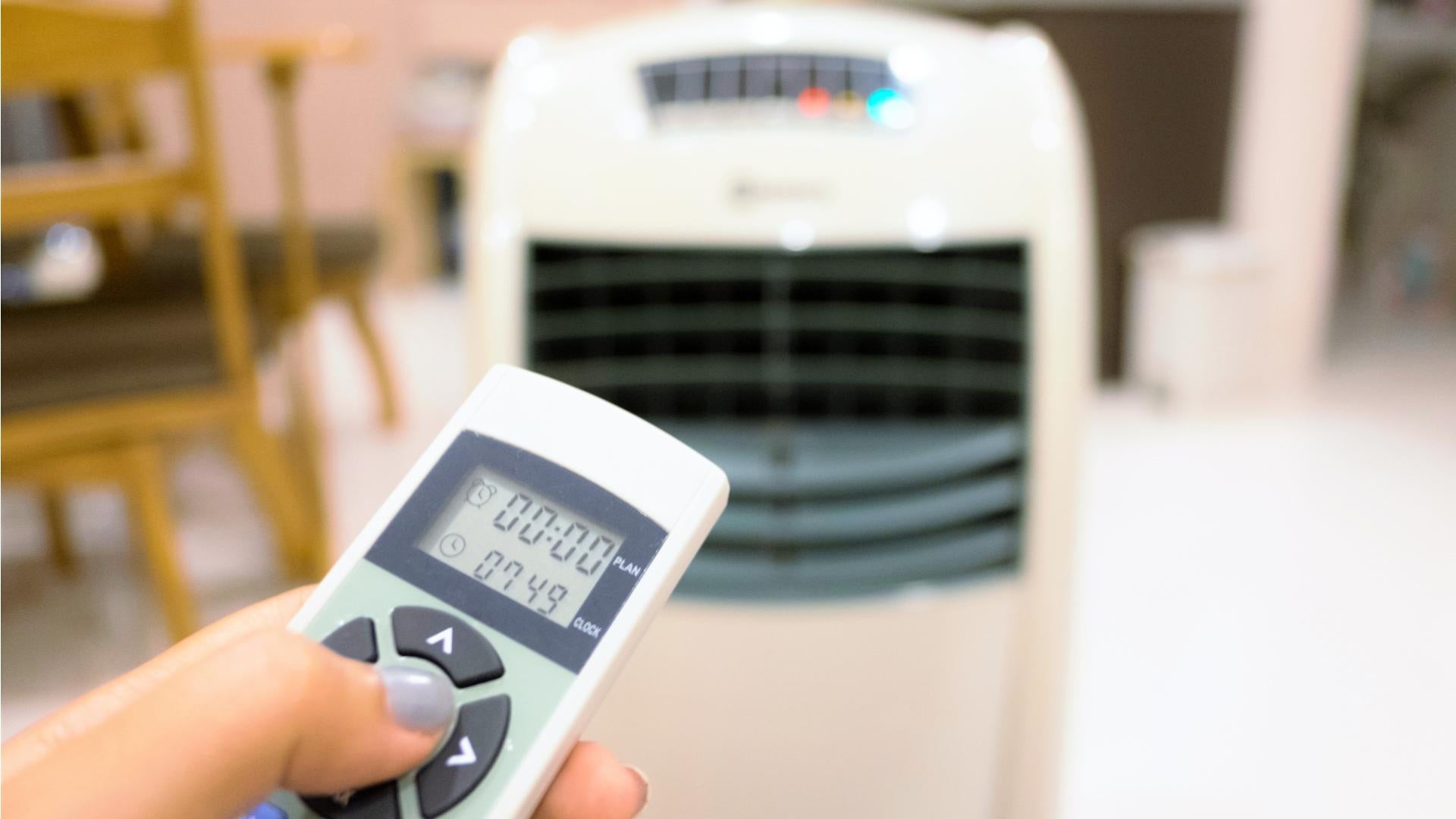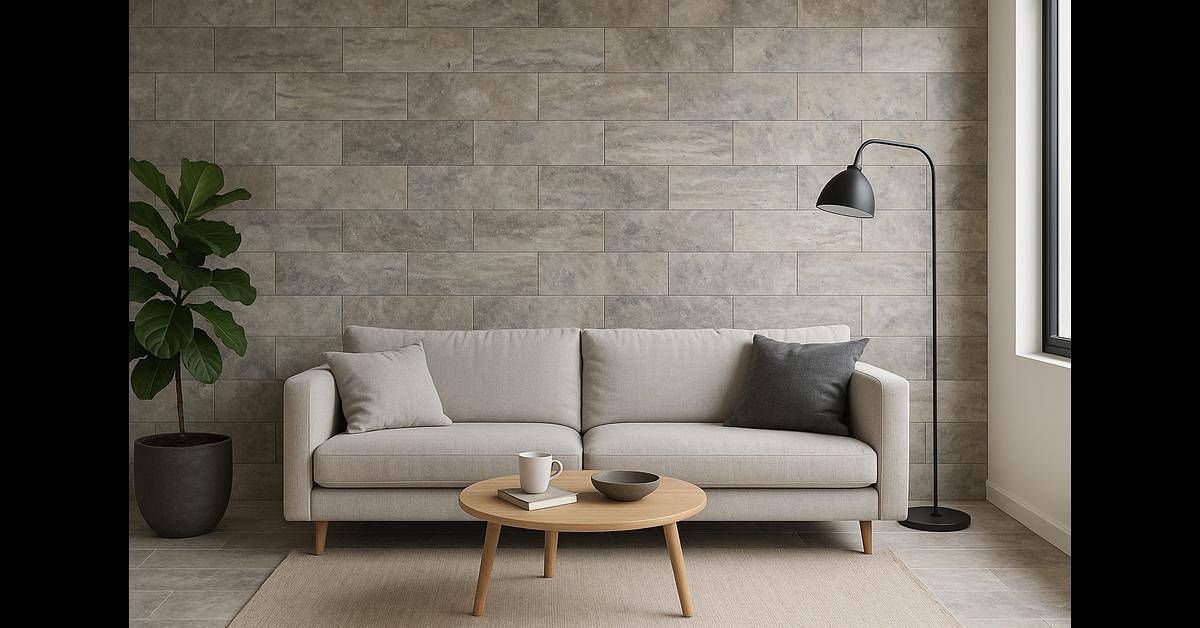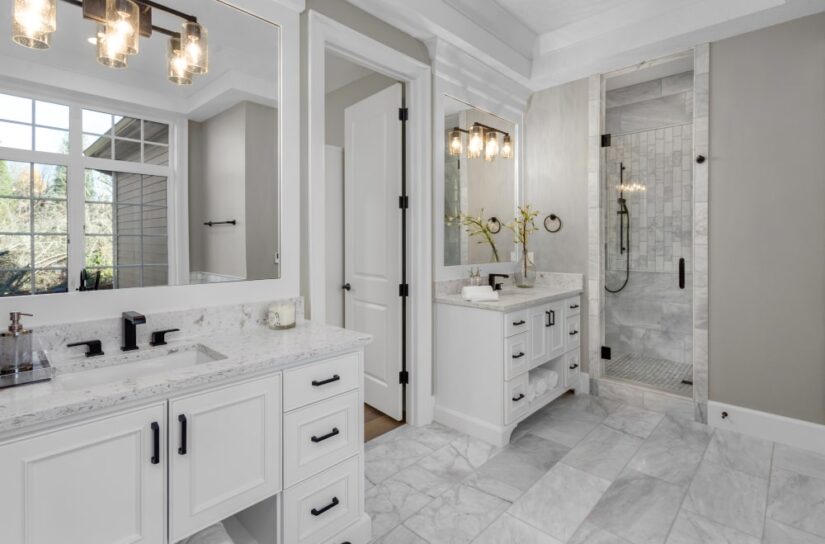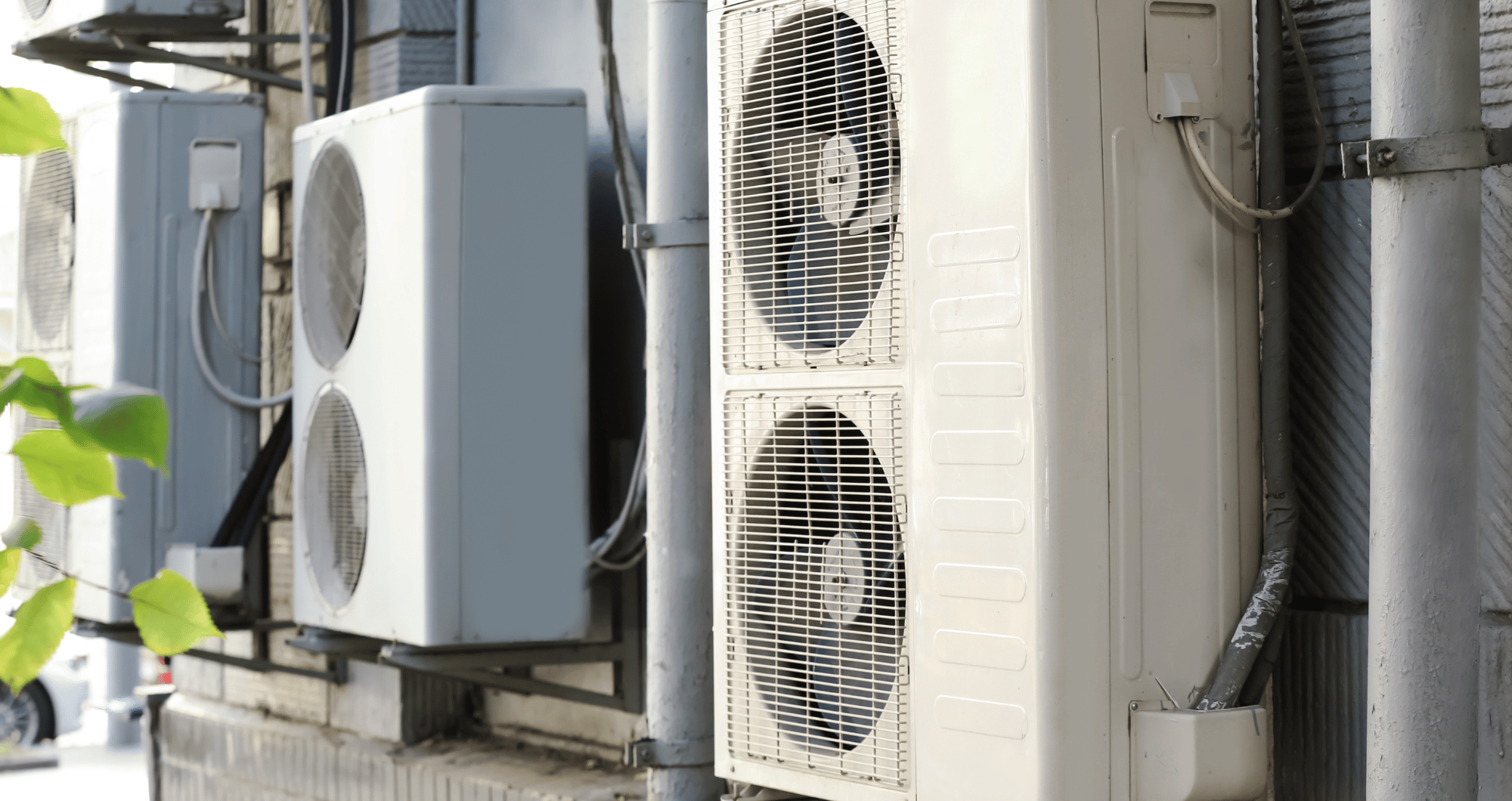Yes, air coolers also known as evaporative coolers, can work effectively in the UK. These cooling devices use the natural process of water evaporation to cool the air, making them suitable for use in various climates.
While air conditioners may be more common in hot and dry regions, air coolers offer several advantages in the UK, such as lower energy consumption, eco-friendliness, and portability. They are particularly useful during warmer months when temperatures rise, and they can help improve indoor air quality and human comfort.
Further, they do not require external hoses, making them a convenient and versatile cooling solution for both indoor and outdoor use in the UK.
Climate and Air Cooling in the UK
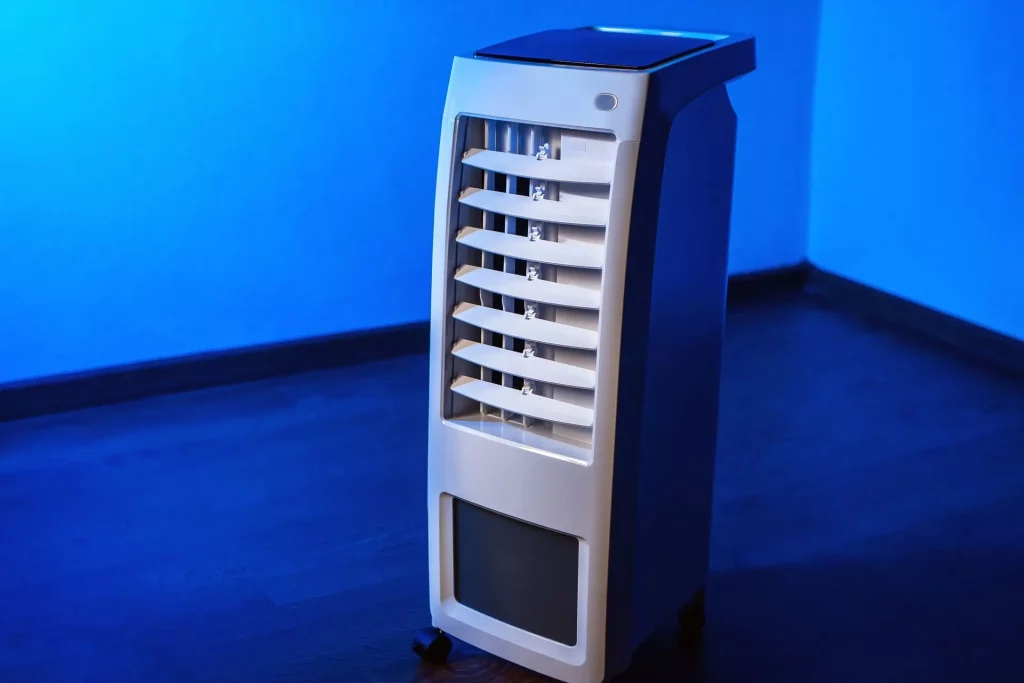
The climate in the United Kingdom is generally characterized by its maritime influence, with mild temperatures, moderate humidity, and a significant amount of rainfall throughout the year. This climate can influence the effectiveness and practicality of air cooling methods, such as air coolers, in the UK. Here’s an overview of the climate and its impact on air cooling in the UK:
- Mild Summers: The UK experiences relatively mild summers, with average high temperatures ranging from 15°C to 25°C (59°F to 77°F) in most regions. However, during heatwaves, temperatures can occasionally exceed 30°C (86°F) in some areas, particularly in the southeast of England.
- High Humidity: It has relatively high humidity levels due to its proximity to the Atlantic Ocean. Humidity can range from 70% to 80% or more, especially in coastal regions. High humidity can reduce the effectiveness of evaporative cooling, a principle on which air coolers rely.
- Variable Weather: The weather in the UK can be quite changeable, with rain and overcast conditions common throughout the year. This can affect the need for cooling systems, as there are often periods when cooling is not required.
- Regional Variations: While it has a broadly consistent maritime climate, there can be variations between different regions. For example, the southeast tends to be warmer and drier than the northwest and western regions.
- Heatwaves: Although it doesn’t experience prolonged periods of extreme heat like some other countries, occasional heatwaves can lead to uncomfortably high temperatures. During these events, the demand for effective cooling solutions may increase.
In light of these climate characteristics, air cooling methods, such as air coolers, can be practical in the UK, especially during short-lived heatwaves or in areas where humidity levels are lower. They can provide a cost-effective and energy-efficient way to cool indoor spaces when the weather becomes uncomfortably warm. However, their effectiveness may be limited by the high humidity typical of the UK, especially in coastal areas.
When considering air cooling solutions, it’s important to assess local climate conditions, specific cooling needs, and whether alternative methods, such as air conditioning, might be more appropriate for certain situations. Additionally, good ventilation and airflow are key to maximizing the performance of air coolers in the climate.
Benefits of Using Air Coolers in the UK
Here are some advantages of using air coolers in the UK:
- Energy Efficiency: Air coolers are more energy-efficient than traditional air conditioning systems. They use less electricity, making them a cost-effective cooling solution. This can help reduce energy bills, which is particularly beneficial in a country where energy costs can be high.
- Environmentally Friendly: They use the natural process of evaporative cooling, which doesn’t rely on harmful refrigerants or produce greenhouse gases. They have a lower environmental impact compared to air conditioners, making them a greener choice.
- Healthier Air: Also, can improve indoor air quality by adding moisture to the air. They can help alleviate problems associated with dry indoor air, such as dry skin, irritated eyes, and respiratory issues.
- Portability: Many air coolers are portable and easy to move around, making them a flexible solution for cooling specific areas in homes or offices. They don’t require complex installations or modifications to the building.
- Low Maintenance: Relatively low-maintenance devices. Regular cleaning and occasional pad replacement are typically the main maintenance tasks. This simplicity can save both time and money compared to maintaining complex air conditioning systems.
- Cost-Effective Cooling: Cost-effective way to stay cool during the occasional heatwaves in the UK. They are well-suited for short periods of high temperatures, and you can use them as needed without incurring significant costs.
- Flexibility: Air coolers are versatile and can be used in various settings, including homes, offices, workshops, and outdoor spaces. They are particularly useful for temporary or seasonal cooling needs.
- Low Noise Levels: They tend to operate quietly, which can be an advantage in residential areas or workplaces where noise levels are a concern. They won’t disrupt your daily activities or sleep.
- Relief During Heatwaves: While the UK generally experiences milder summers, occasional heatwaves can lead to uncomfortably high temperatures. Air coolers offer a practical and affordable way to cool indoor spaces during these short-lived heatwaves.
- Reduced Energy Consumption: lastly, they can help reduce the strain on the electrical grid during peak demand periods, which is beneficial for the overall stability of the power supply in the UK.
Disadvantages of Evaporative Cooling
Air coolers can have limitations when used in the UK. Their effectiveness can be reduced in the humid British climate, and they might not cool a room as well as air conditioners. These coolers require a constant water supply, which can be bothersome, and they work best in open spaces rather than enclosed rooms.
Additionally, they can increase humidity, which may not be ideal in already humid conditions. Some air coolers can be noisy, and they typically offer basic cooling features. Keep in mind that air coolers are most suitable for use during hot summer months and may not be needed year-round.
Choosing the Right Air Cooler: Simple Tips for Your Comfort
Room Size: First, think about the size of the room you want to cool. You don’t want an air cooler that’s too small because it won’t do much. But if it’s too big, it could make the room too humid. Look for air coolers that are suitable for your room’s size, like small ones for your desk or bigger ones for larger spaces.
Water Tank: The water tank in the air cooler is important. It determines how often you need to add water. Smaller tanks need more refills. Some air coolers have a compartment for ice, which makes them cooler. Make sure the tank can hold water for at least 10-12 hours.
Fan Speed: They have different fan speeds. Some can change the direction of the air, while others have modes like a breeze mode for natural airflow or a quiet night mode.
Noise Level: Check how loud the air cooler is. If you use it during the day, up to 50 decibels is okay. For nighttime use, keep it around 40 decibels for quieter operation.
Design & Portability: If you want to move it around, get a portable one with wheels or a handle. Lighter units are easier to carry. Look for them that can change the air 20 times an hour for the best results. Less than 20 changes can make the room too humid, and more than 55 changes increase energy use.
Cooling Pads: Good cooling pads are essential for longer cooling. Honeycomb cooling pads are great because they last a long time and hold more water for better cooling.
Comparison: Air Conditioner vs. Air Cooler (Evaporative Cooler)
| Feature | Air Conditioner | Air Cooler (Evaporative Cooler) |
| Cooling Mechanism | Uses chemical refrigerant and a compressor to cool the air. | Uses the natural process of water evaporation to cool the air. |
| Energy Consumption | Requires a significant amount of energy. | Uses much less energy compared to air conditioners. |
| External Hose | Requires a hose to expel hot air outdoors. | Operates without the need for external hoses. |
| Installation | Typically installed in enclosed indoor spaces. | Suitable for both indoor and outdoor use. |
| Portability | Generally less portable due to installation requirements. | More portable, often coming with wheels for easy movement. |
| Environmental Impact | Uses chemical refrigerants and consumes more energy. | Environmentally friendly, as it doesn’t use harmful chemicals or produce greenhouse gases. |
| Cost | Higher initial cost and operating cost. | Lower initial cost and reduced operating costs. |
Why Evaporative Cooling Is Ideal for Food and Beverage Manufacturing Facilities
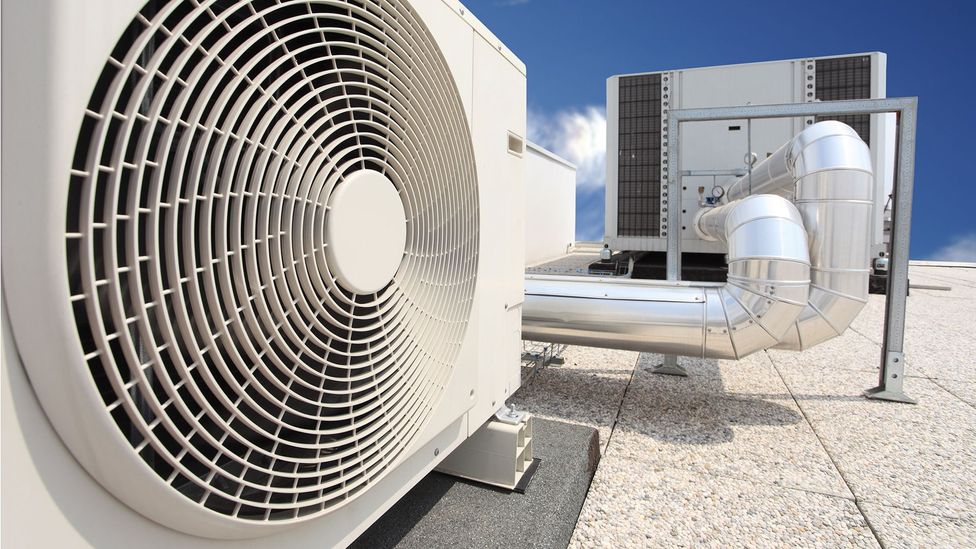
Evaporative cooling is well-suited for food and beverage manufacturing facilities for several important reasons. These facilities face challenges related to air quality and human comfort.
Air Quality: Food production plants can generate pollutants, germs, and fumes that may pose health risks to workers. Using traditional air conditioning systems that recirculate old air can exacerbate indoor air pollution and compromise the sterility of the food production process. Evaporative coolers, on the other hand, draw in fresh air from the outside and filter it, removing dust, pollen, and other particles. This ensures a constant supply of high-quality air, improving indoor air quality.
Human Comfort: Food manufacturing facilities often experience high temperatures, which can make working conditions challenging, especially during the summer. Studies have shown that productivity decreases as temperatures rise. Evaporative coolers provide an effective cooling solution, as they work best when they are needed the most. They can help maintain a comfortable working environment by reducing high temperatures and the risk of accidents associated with overheating.
Humidity Control: Experienced suppliers can also help monitor and control humidity levels in the facility. Proper humidity control enhances comfort, helps manage static electricity, and supports humidity-sensitive processes in the food production industry.
FAQ’s
Is it worth getting an air cooler?
Yes, Air coolers are a cost-effective alternative to air conditioners. While they may not cool rooms as intensely as AC units, they maintain a lower and more consistent temperature, making them suitable for larger spaces. Air coolers are considerably cheaper to purchase and operate, and they do not require window or wall vents.
Does air cooler really cool the room?
No, Air coolers do not cool a room like air conditioners. They use evaporative cooling, which is more effective in dry climates. Air conditioners, on the other hand, use a refrigeration cycle to cool the air, offering a more significant cooling effect.
Is an air cooler better than a fan?
Yes, air coolers are more effective at cooling than fans. Air coolers release cool air, affecting the overall room temperature, whereas fans circulate warm air. Air coolers provide a more noticeable cooling effect across the entire room.
Are air coolers effective in London?
Yes, air coolers are effective in London. The climate in the UK, including London, is suitable for evaporative cooling. Evaporative coolers work efficiently in the UK’s climate conditions for most of the year.
How can I cool my room in the UK?
To cool your room in the UK, open windows and doors to encourage airflow. Use curtains or blinds to block out the sun during the day, and consider opening the attic hatch to allow hot air to escape. These measures can help maintain a cooler room temperature.
What is the disadvantage of an air cooler?
One disadvantage of air coolers is that they are not ideal for humid areas. Excess humidity can hinder an air cooler’s ability to absorb moisture from the air, affecting its performance. Air coolers are more suitable for regions with lower humidity levels.
Final Words
In conclusion, air coolers, also known as evaporative coolers, can be effective cooling solutions in the UK, particularly during the warmer months. They offer several advantages over traditional air conditioners, including lower energy consumption, eco-friendliness, and suitability for both indoor and outdoor use.
Further, they use the natural process of water evaporation to cool the air, providing a cost-effective and environmentally friendly cooling option for UK residents. While they may not provide the same level of cooling as air conditioners in extremely hot and dry climates, they can make a significant difference in comfort and indoor air quality, making them a viable choice for many in the UK.







